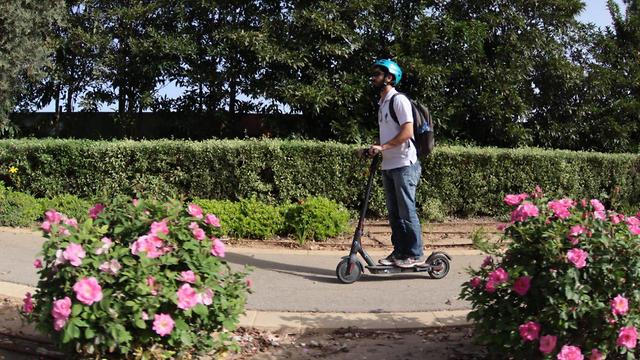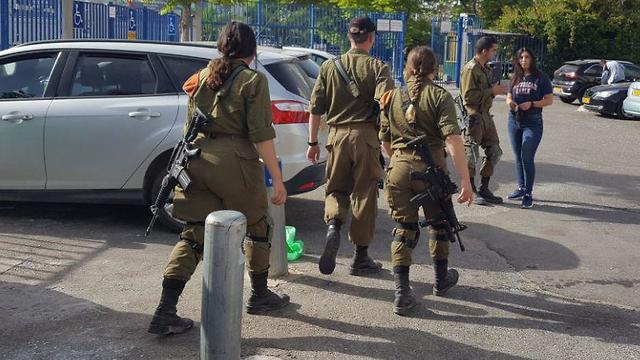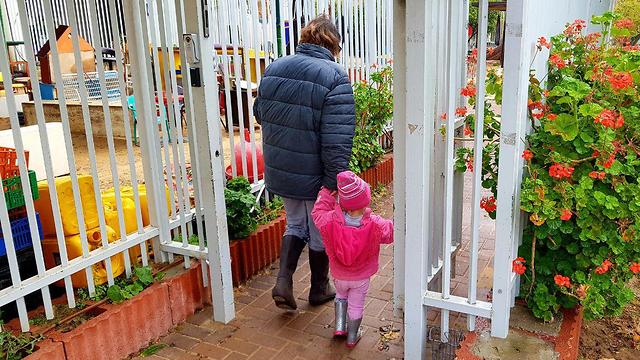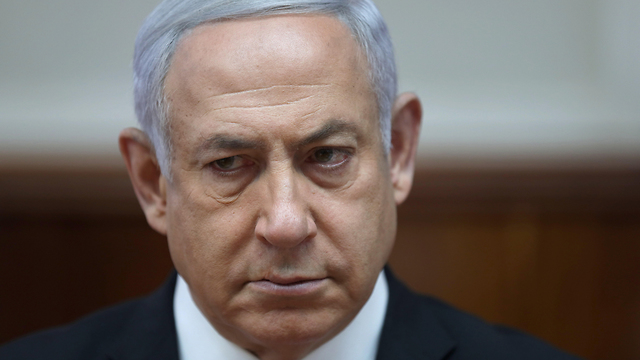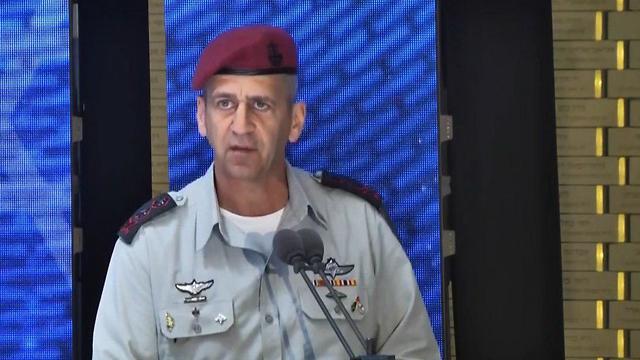
Back to routine
There was anger and dismay on the Israeli side of the Gaza border on Monday after two days of rocket blasts and air-raid sirens that ended with a ceasefire.
The dawn deal restored general calm after a barrage of nearly 700 Hamas and Islamic Jihad rockets, the most serious outbreak of violence between Israel and Palestinian militants for months.
But the cessation was greeted with little enthusiasm in the Israeli cities, towns and villages where Israelis were fuming, as well as weary of having to run to shelters.
"In a month, in two weeks, in a month and a half, it will all happen again - we achieved nothing. I think Israel needs to strike them very, very hard so that they learn their lesson," said Haim Cohen, 69, a retired electrician from the coastal city of Ashdod 15 miles (25 km) north of the Gaza Strip.
Behind him, cleaners were sweeping shattered glass outside a house where an Israeli was killed by a Gaza rocket on Sunday when running for cover. He was one of four Israelis killed.
"I think that this is Netanyahu's failure. I regret convincing people top vote for him," said Baruch from Ashkelon. "What have we received? The bodies of our missing soldiers and captives? No. we got 700 rockets and frightened children… Gaza decides when to start a war and when to end it," he said, to nods of assent of his neighbors.
Mor, a resident of Netivot, expressed surprise that the Home Front Command allowed for children to return to school with so short notice. "We fled to the center of the country believing we would stay there for a few days. Suddenly this morning we saw the notice and began getting ready to leave for home. It isn’t right to open kindergartens with such short notice. The staff are not the usual staff that our kids are familiar with and its all one big emotional roller coaster for them," she complained.
Residents of Sderot, who are used to the situation more than others, also expressed bitterness at the way events unfolded. "I do not believe in this ceasefire. There is always hope but this isn’t our first time. We are living this reality for so many years, but the latest round was unusual even for us," said Shula, a local resident.
Speaking about the IDF airstrikes against Hamas and Islamic Jihad targets in Gaza, Prime Minister Benjamin Netanyahu said: "we hit them hard," before adding: "This his not yet over and patience and good judgement are necessary. We are preparing for the continuation. The goal was and remains to ensure quiet and security for residents of the South. I send my condolences to the families of those killed and well wishes to the injured."
A security official added that the terror groups were surprised by the force Israel applied and did not properly evaluate the Israeli reaction to their provocations. "Hamas and Islamic Jihad understood that the rules of the game have changed and therefore ceased firing on their own initiative after repeated requests (ignored by Israel) for a ceasefire."
IDF Chief of Staff Aviv Kochavi noted that the IDF "destroyed hundreds of terror targets in Gaza over the last two days, including command centers, weapons stores and infrastructure."
The Islamist Hamas seized control of Gaza in 2007, two years after Israel pulled its troops and settlers out of the small coastal enclave. Since then, the two sides have waged three wars and engaged in repeated tit-for-tat barrages.
Some Israelis who live close to the Gaza border believed their government agreed to a truce with Hamas because it did not want rockets raining down during the upcoming Independence Day holiday, or the Eurovision Song Contest finals that begin on May 14 in Tel Aviv, just 50 miles (80 km) up the coast from Gaza.
"Eurovision set the agenda and not us, the residents of the south," said Ofer Liberman, from Nir-am, a kibbutz - or agricultural village - near northern Gaza. He said he felt abandoned, adding: "I want the government to make Hamas too scared to launch rockets at us."
"I think that a ceasefire is a mistake. You don't do a ceasefire with a terrorist organization. If this cycle isn't finished properly and if Gaza isn't cleansed of these terrorists then nothing will help," said Jack Mandel, 57.
In Ein Hashlosha, a kibbutz about a mile and a half from Gaza, Meirav Kohan, 46, said she was shocked and disappointed at the truce.
"This is a war of attrition and the government is not looking for a long-term solution to bring us peace. There's no policy. We're just pawns in a game," she said.















